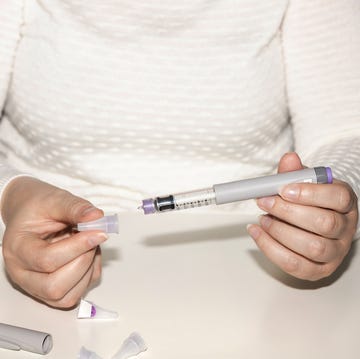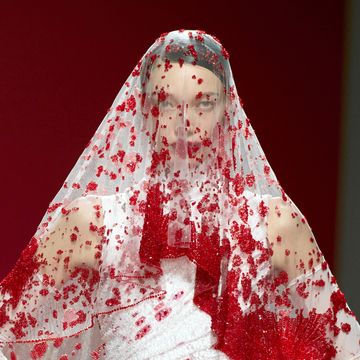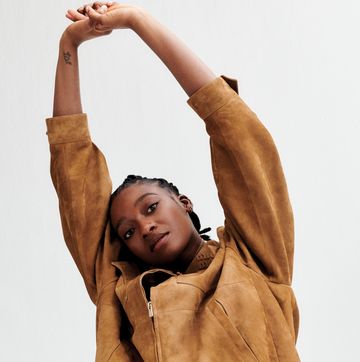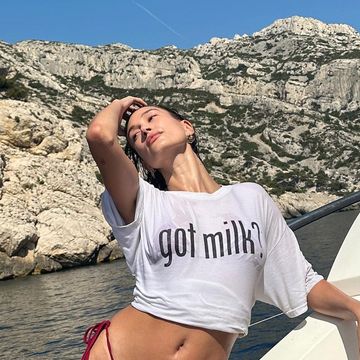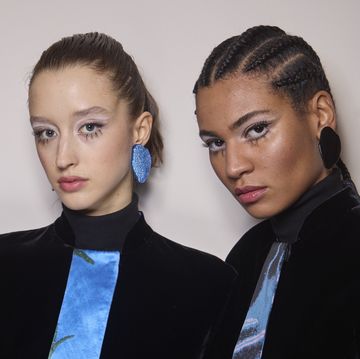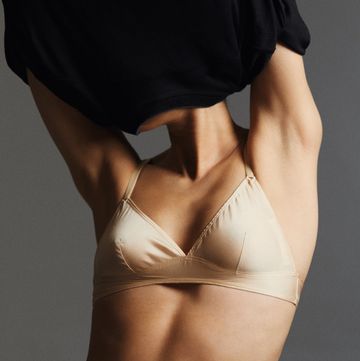The morning Taylor Swift dropped The Tortured Poet’s Department, my friend Hannah WhatsApped me a lyric from the album – not as a critic or as a fan, but as a woman who’d found a protest song. 'I cry a lot, but I am so productive,' she messaged. 'That is very eldest daughter coded.'
For almost 32 years — since my brother Toby arrived two days before my second birthday — I have been an eldest daughter (Hannah has a year or so’s experience on me). I was eight when my sister Georgia was born, 11 when Molly arrived, and by my early teens, a maestro at my role: part childminder, part disciplinarian. I could juggle several school bags, a tennis racquet and a saxophone while stopping a six-year old from walking into moving traffic; I knew which combination of words to hiss into a small ear to stop someone from acting up in public. I could do all this while always, always finishing my homework.
That I have waited most of my lifetime for my moment is just the latest injustice of being an eldest daughter — but finally, we firstborn girls are in the spotlight. Or perhaps on the metaphorical therapist’s couch: the internet is obsessed with so-called ‘eldest daughter syndrome’. On TikTok, the hashtag #eldestdaughter pulls up endless riffs on the archetypal traits of eldest daughters: anxious, dutiful, responsible, independent type-As, selfless to the point of martyrdom, pernickety over-planners and people-pleasers. In short — women whose school reports were strewn with the word ‘conscientious’.
FIND OUT MORE ON ELLE COLLECTIVE
'Being an eldest daughter is like an unpaid internship for the rest of your life'; 'Are you happy or are you a girl and also the oldest daughter?' I relate to 'as the eldest daughter I am my family’s project manager' but it is 'no one thrives more in an airport than a solo-travelling eldest daughter' that really speaks to me. I never feel more myself than when I am flying alone — arriving three hours before my flight with my toiletries pre-bagged, unencumbered by anyone who wishes to have a pint in departures. Power-walking with my wheelie suitcase down the travelator as soon as the gate is called is when I feel the purest essence of my being can be expressed.
Have I been ‘influenced’? The science on birth order is unclear: while some studies have found links between birth order and your outcomes in life, a 2015 study of more than 20,000 people in Germany, the UK and the US found no evidence that birth order shapes your personality (although there was some evidence that elder children have slightly higher IQs).
Still, I’ve always felt it shaped my role within our family unit – and the way the ‘syndrome’ has struck a chord suggests many other eldest daughters feel the same. 'Birth order exerts a profound influence on our development, shaping our personalities, behaviours, and relationships in multifaceted ways,' says Dr Jenna Vyas-Lee, clinical psychologist and co-founder of mental health clinic Kove (www.koveminds.com), and herself an eldest daughter. She continues: 'As the eldest child, individuals often find themselves in a unique position of responsibility and authority within the family unit. From a young age, they may assume a leadership role, serving as a role model and taking on caretaking duties. This can instil qualities such as maturity, reliability, and a strong sense of duty.'
The cultural representations of eldest daughters plays into this. Our taliswoman is the conscientious Meg in Little Women, and celebrity eldest daughters also have real ‘head girl’ energy. Besides Swift, there is Beyoncé, Hilary Clinton, Emma Watson, and Gwyneth Paltrow, a woman so uptight that it did not surprise me to learn that she may at any given point have an egg stuck up her vagina.
I ask my siblings what they think about ‘eldest daughter syndrome’ (unsurprisingly, their algorithm doesn’t serve them the same TikToks). 'My theory is that I would want an eldest daughter in any emergency or crisis situation,' middle-child Georgia says. Well, duh.
'I used to be like that’s not fair, we all have troubles,' Molly offers. 'And then I reflected on how completely hands off Mum and Dad were in parenting me and I was like, fair enough to the eldest daughters, actually.' As a teenager, I had a strict curfew. Molly used to go to parties on a Friday and not come home until Sunday. To say she has heard this before is an understatement.
'I think you're more individualistic,' my brother says. 'You forged your own way more cos you were first.' This also plays out: I moved out when I was 17 and spent my gap year living and working independently. I rarely call my parents if I am in a bind; even as adults, my siblings seem to be on the phone to them almost constantly.
Of course, ‘eldest daughter syndrome’ may also have a lot to do with the ‘responsibility tax’ we place on women. 'What we call eldest daughter syndrome is really a collective problem of gender inequality, which concerns us all,' says Yang Hu, Professor of Global Sociology at Lancaster University. 'Gender roles undoubtedly play a significant role in shaping the experiences of eldest daughters within the family dynamic,' agrees Vyas-Lee. 'While eldest sons may also experience expectations related to leadership and responsibility, there tends to be less emphasis on their caregiving roles within the family.'
Eldest daughters, meanwhile, 'may find themselves navigating a complex web of societal expectations, balancing traditional gender roles with the demands of their birth order position.' In some faiths and societies, these cultural expectations are intensified and must exert a huge pressure.
Professor Yu points out that 'it is important not to pathologise eldest daughters as if they were suffering from an illness'. And that’s the thing. Sure, you often end up coordinating your mother’s birthday present, or mediating a row between two tempestuous middle children. But I’d hazard that many of my elder sisterhood agree with me when I say there is something quietly gratifying about the notion of ‘eldest daughter syndrome’. It is essentially like being ‘diagnosed’ as a sensitive and responsible leader whom people cannot live without.
Or in other words: 'I cry a lot, but I am so productive.' I’d wear that on a T-shirt.
ELLE Collective is a new community of fashion, beauty and culture lovers. For access to exclusive content, events, inspiring advice from our Editors and industry experts, as well the opportunity to meet designers, thought-leaders and stylists, become a member today HERE.




